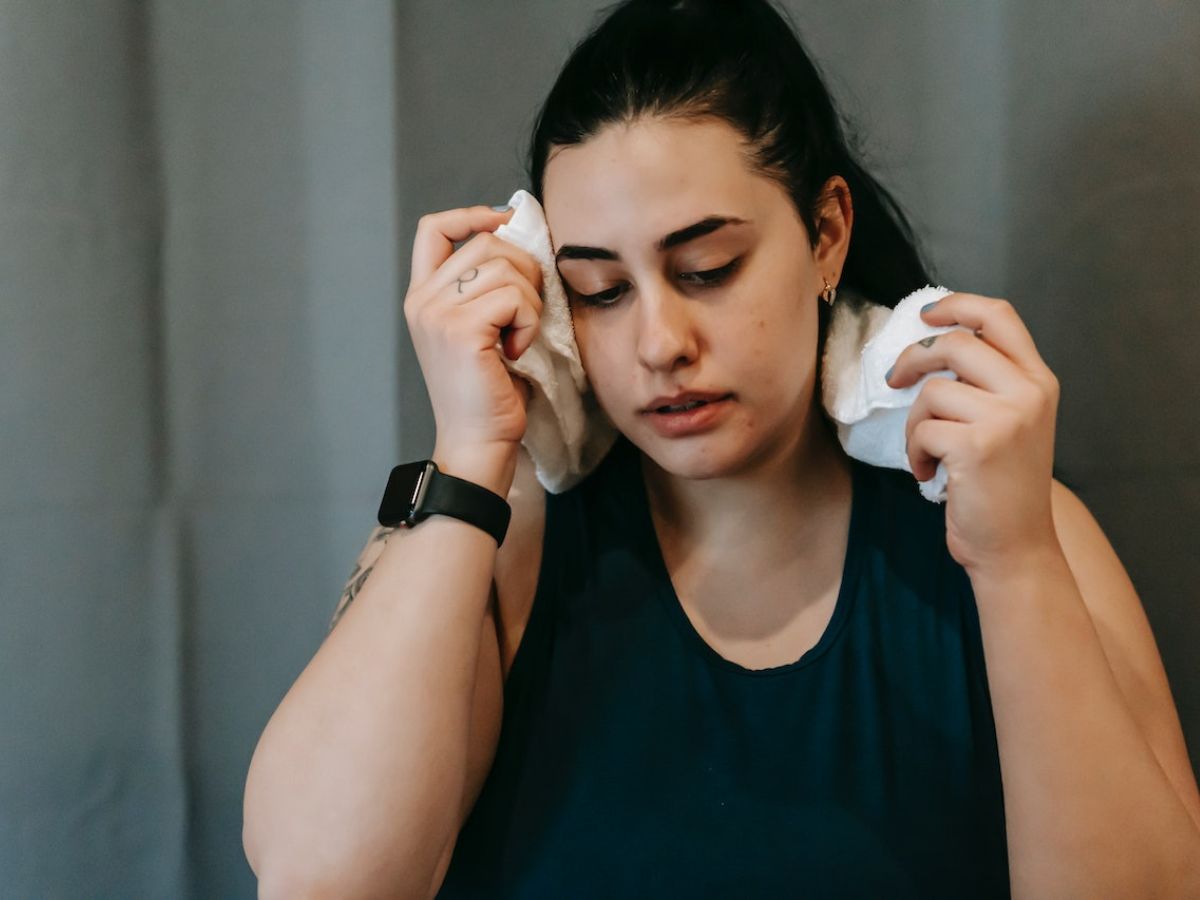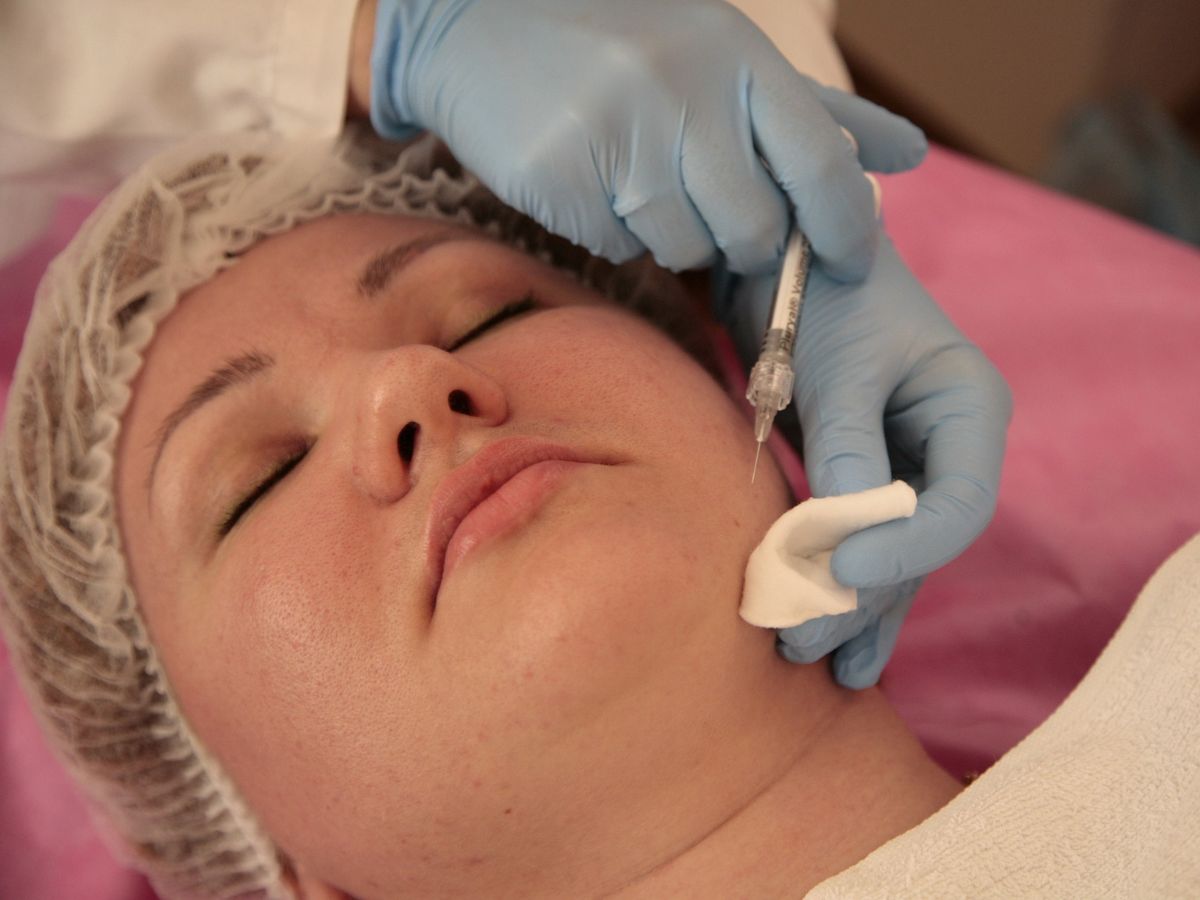A common symptom of hyperhidrosis disorder is excessive sweating. No common reason causes excessive sweating in the human body. It’s mostly due to underlying or unusual hormone fluctuations in the body.
The most common medical conditions causing it are menopause and hyperthyroidism. Inconvenient hyperhidrosis is possible. However, several treatments can offer some solace.
According to National Center for Biotechnology Information, Hyperhidrosis affects about 4.8 percent of Americans. However, this number may be underreported. Many people don’t seek therapy because they are unaware they have a medical problem that can be treated. Here are the most common excessive sweating causes.
Excessive sweating causes
Hyperhidrosis (excessive sweating) types and its causes
Sweating is a typical reaction to several situations, such as strenuous exertion, stress, hot weather, and emotions of fear or rage. You sweat more than normal. If you’re not sweating due to any of the reasons above, then you have hyperhidrosis. The underlying cause may differ based on the kind of hyperhidrosis you have.
Primary focal hyperhidrosis
The main places you sweat are on your feet, face, hands, underarms, and head. It usually starts in early childhood. About 30 to 50% of people with this type possess a family history concerning excessive sweating, as per Trusted Source.
Secondary generalized hyperhidrosis
Sweating secondary to a medical condition or a medication’s side effects are known as secondary generalized hyperhidrosis. Adulthood is typically when it begins. This type of sweating might occur anywhere on the body or only in one spot. Furthermore, you might sweat while you’re asleep.
Conditions of this kind include:
- Heart Disease
- Cancer
- Adrenal Gland Disorders
- Stroke
- Hyperthyroidism
- Menopause
- Spinal Cord Injuries
- Lung Disease
- Parkinson’s Disease
- Infectious Diseases Like Hiv And Tb
Additionally, several prescriptions and over-the-counter drugs can result in hyperhidrosis. Sweating is a common odd side effect that only several individuals encounter. However, an undesirable effect of antidepressants like is typically increased sweating like:
- Protriptyline
- Excessive sweating can also occur in people who take zinc as a dietary supplement or pilocarpine for dry mouth.
- Desipramined (Norpramin)
- Nortriptyline (Pamelor)

Excessive sweating signs and symptoms
The following are signs of excessive sweating:
- Profuse perspiration that has persisted for at least 6 months with no discernible cause
- Sweat that is produced in equal amounts on all sides of your body.
- ‘Excessive sweating’ happens at least once weekly.
- Perspiration that makes it difficult to go about your regular business (like work or relationships)
- Heavy sweating that started when you were under the age of 25
- Not sweating during sleep.
- A history of hyperhidrosis in the family
- These elements could point to primary focal hyperhidrosis. To receive a more precise diagnosis, you must visit a doctor.
- If you sweat excessively in one place or all over, you may have secondary generalized hyperhidrosis. It is essential to see a doctor establish the underlying problem.
- There are certain dangerous conditions connected to excessive sweating. Please inform your doctor if you also experience other strange symptoms besides sweating.
Excessive sweating treatment alternatives
Excessive sweating can be treated in several ways.
1. Specialized antiperspirant
A doctor might suggest an aluminum chloride-containing antiperspirant. It is frequently used to treat mild symptoms of hyperhidrosis and is stronger than those purchased without a prescription.
2. Iontophoresis
While one is submerged in water, a gadget that generates low-level electrical currents is used in this treatment. The currents are frequently applied to your armpits, hands, and feet to temporarily block your sweat glands.
3. Anticholinergic medications
Anticholinergic medications can reduce widespread perspiration. These medications, including glycopyrrolate (Robinul), stop acetylcholine from functioning. Your body creates acetylcholine, which helps to activate your sweat glands.
These medications have a two-week working period and can have adverse effects, including dizziness and constipation.
4. Botox (botulinum toxin)
Severe hyperhidrosis may be treated with Botox injections. They block the neurons that activate your sweat glands. Usually, it takes a few injections for this treatment to start working.
5. Surgery
Surgery could be able to treat your disease if you simply perspire in your armpits. In one surgery, the sweat glands in the armpits are removed. An endoscopic thoracic sympathectomy is another choice. To do this, you must cut the nerves which transmit signals to your sweat glands.
Home remedies
- By applying over-the-counter antiperspirants to the affected region, you may try to lessen sweating.
- everyday bathing to get rid of germs
- putting on socks and shoes made of natural materials
- allowing your feet to breathe
- changing your socks often
When do I require to call my doctor?
Sweating excessively can indicate other, more dangerous conditions. If you experience:
- Weight reduction from sweating
- Sweating that primarily takes place while you sleep
- Shortness of breath, a quick heartbeat, and sweating that comes with a fever
- Perspiration and chest discomfort or a pressure-like feeling in the chest
- Long-lasting, inexplicable sweating
In what ways do dermatologists identify hyperhidrosis?
A dermatologist examines the patient physically to determine the disease. To do this, observe which body parts sweat a lot, and a dermatologist can also make in-depth inquiries. This clarifies to the doctor why the patient is sweating excessively.
Testing for medical conditions is occasionally required.

How do dermatologists manage excessive sweating?
Treatment is based on the hyperhidrosis type and the area of the body that experiences excessive sweating. Your dermatologist also takes into account other variables and your general health.
A few remedies are antiperspirants, iontophoresis, botulinum toxin injections, prescription medication, prescription cloth wipes, and surgery.
FAQ
Is hyperhidrosis a common condition?
At least 1% of people have primary hyperhidrosis. The etiology of hyperhidrosis is unknown. Other illnesses or treatments that impact the body can cause secondary hyperhidrosis.
Can you treat hyperhidrosis?
Although some individuals report that their hyperhidrosis improves as they age, it has no known cure. However, numerous treatments can help you stop sweating and implement simple lifestyle changes.
Is excessive sweating heredity?
Yes, many patients report having parents, siblings, or, in up to half of instances, an extended family member who has the illness. On the other hand, many patients have no family history of the condition.
Final thoughts
Treatment options exist for primary focal hyperhidrosis. Together with you, your doctor will develop a treatment plan to enable you to manage your symptoms.
When the underlying illness is cured, excessive sweating that was caused by it might stop. Depending on the underlying illness causing your sweating, there are different treatments for secondary generalized hyperhidrosis. If you believe your excessive sweating results from medicine, speak with your doctor. If you can switch medications or reduce the dosage, they will decide.
